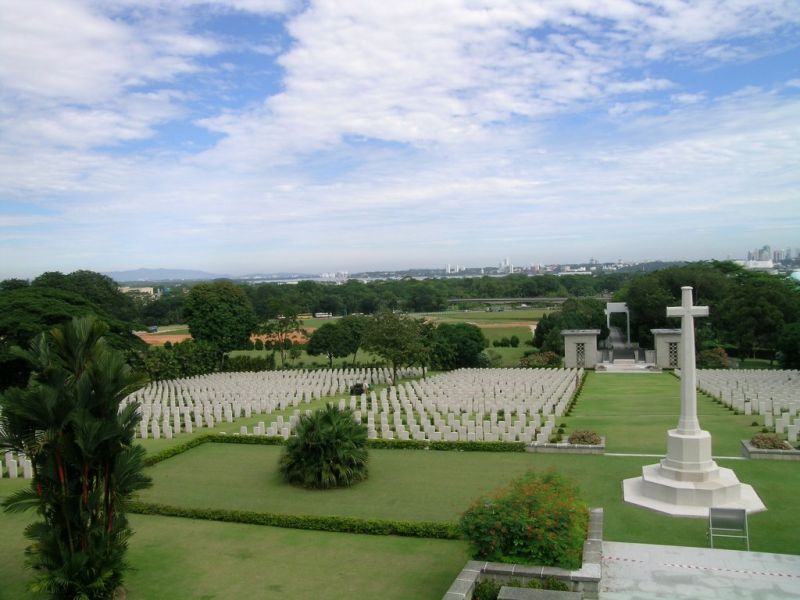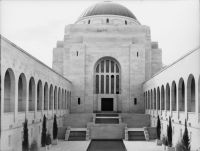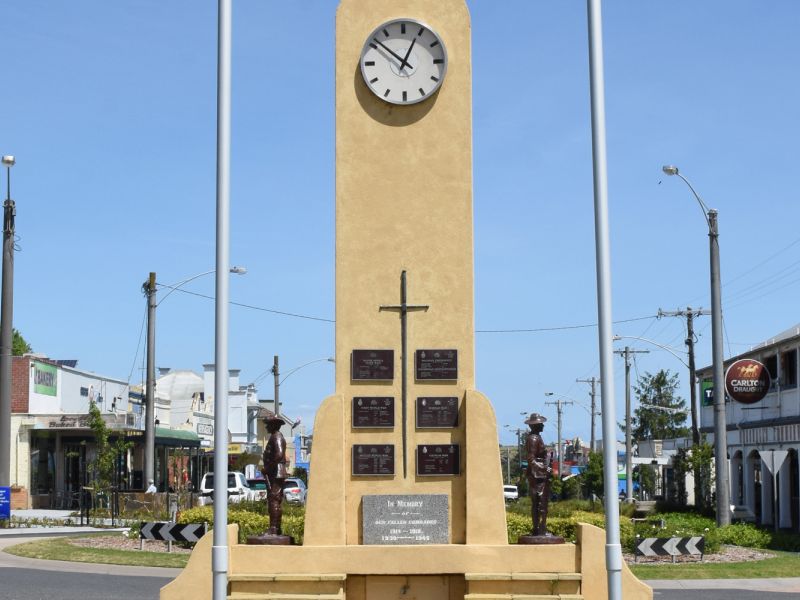Private William Alfred Darby West, 2/29th Australian Infantry Battalion
William West was born on the 1st of September 1914 in the inner Melbourne suburb of North Fitzroy, the son of Walter Sydney and Myra Rosalie West.
William West lived for some time in Orbost in East Gippsland, where he worked as a timber hewer.
He enlisted for service in the Second Australian Imperial Force at Sale, Victoria, on 11 July 1940, and soon joined the men in camp at Caulfield in Melbourne.
In November he was transferred to the 2/29th Battalion, which had recently been formed at Bonegilla. The last AIF infantry brigade raised for service during the Second World War, the 2/29th completed its initial training at Bonegilla before travelling to Bathurst at the end of February 1941.
At the end of July, Private West sailed with the rest of his brigade to Singapore, arriving on 15 August. In the second week of September, the 2/29th travelled to Segament in Malaya, where it continued its training. It would not be long before the men put what they had learnt into practice.
Japanese forces landed in Thailand, and northern Malaya, just before midnight on 7 December. By mid-January they had reached the Muar River, in northern Johore province, an area defended by an inexperienced and poorly trained Indian brigade. The 2/29th and 2/19th Battalions were sent in as reinforcements. The 2/29th reached Bakri on 17 January and assumed defensive positions. The Japanese attacked the next day. The fighting was fierce but the battalion and the 2/4th Anti-Tank Regiment destroyed several Japanese tanks. In the meantime, the 2/19th had arrived at Parit Sulong, south of Bakri, having fought its way through the Japanese who had started to encircle the 2/29th.
The 2/19th attacked along Muar Road 19 January and held a crossroad long enough for the 2/29th and the Indian units to withdraw. But the Japanese had already outflanked the 2/19th position, and the Australians and Indians began to withdraw towards Parit Sulong the next morning. Constantly harried from the rear and by air, the force fought its way through a succession of Japanese roadblocks but was halted by strong positions around the bridge across the Simpang Kiri River at Parit Sulong. With its ammunition exhausted, food supplies low, casualties mounting, and no chance of relief, the able-bodied men struck out through the jungle for Yong Peng on the morning of 23 January. About 150 Australians and Indians were too seriously injured to move, and their only option was to surrender.
Imperial Guards kicked and beat the wounded prisoners of war with their rifle butts. Some were tied up with wire in the middle of the road and machine-gunned before petrol was poured over the bodies and they were set alight. Local accounts reported groups of prisoners being tied together with wire and forced to stand on a bridge, before a Japanese soldier shot one of them, causing the rest to fall into the river and drown.
William West’s fate remained unknown. Initially listed as missing on 26 January 1942, in April 1946 he was declared as having gone missing on 20 January 1942, and for official purposes he was presumed deceased.
His father, Walter Sydney West, died in August 1946. Three years later his son William West was reported as having been killed in action.
Today, he is commemorated at Kranji War Cemetery in Singapore, with a headstone that states he is “buried near this spot”, and which bears the inscription chosen by his grieving family: “For King and Country he lay down his life”.
- AWM Honour Roll https://www.awm.gov.au/collection/R1694210

 Australian War Memorial
Australian War Memorial